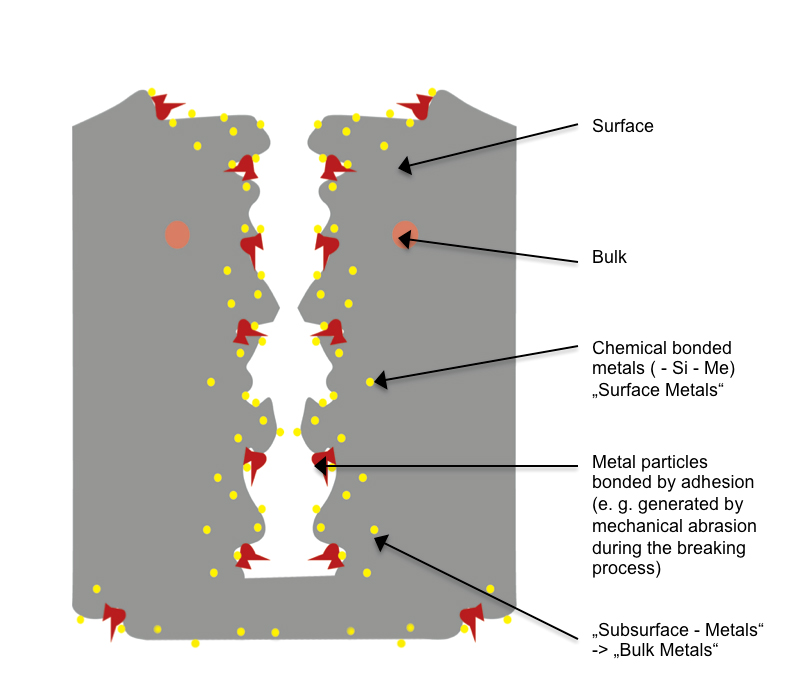October 17, 2012 -- DECKER, a specialist in wet-chemical processes, has put a silicon-purifying system on the market which is also capable of treating difficult to purify porous silicon. The silicon purified in this manner is subsequently suitable for production of high-performance solar cells and can be marketed at a correspondingly higher profit.
Despite good long-term forecasts, the solar industry currently has to make it through a period of low prices. Cost calculations are made with corresponding rigor. Therefore companies are investing intensively in the development of more efficient processes for all steps in the process chain. For silicon manufacturers, the upgrading of contaminated silicon to high-quality solar silicon provides an opportunity to increase profits.
Silicon with a lower purity level is produced in the edge zones of the crystal during the manufacturing of high purity silicon. During the crystal growth phase, the edge zones are subject to dendrite growth, undesirable disruptions of the crystal structure, and possibly deposits of metals, carbonates, or other substances on this ragged surface. These are undesirable structures which can develop both in the Fluidized Bed Reactor FBR and in the Siemens process. It is well known that the addition of metals leads to a lower minority carrier lifespan, which reduces the efficiency of the solar silicon. Further causes for the contamination of silicon on the surface and immediately below the surface include the rapid diffusion of metal atoms such as nickel or copper into the silicon at room temperature, and contamination during transportation, milling, storage, and packaging.
Due to the low quality, such contaminated material fetches lower prices. Highly pure silicon has a purity level of 10 ppb(w) with regard to the metal content, and a charge carrier lifespan of 10 000 nanoseconds. The requirements for PV silicon are lower, but are increasing all the time.
Contaminated material can be upgraded through corresponding purification. A higher purity level also has a beneficial effect on the performance of the CZ pullers, for example. But due to the complicated popcorn-like surface of the material, the purifying of porous silicon (chunks) is a complex task. The material has fissures, crevices, and cracks, resulting in a very large surface area which is hard to reach with cleaning substances. The rinsing and drying of materials with such furrowed surfaces is just as challenging.
Objective: High throughput at low costs
Wet chemical processes with either alkaline or acidic cleaning substances or combined processes are suitable for purifying silicon. The material to be cleaned is batched and moved horizontally and vertically in rotating baskets or drums. What is required is a fully automated process which passes the silicon through during the wet chemical cleaning process. But how is it possible to ensure that the crevices and cracks are cleaned and flushed as necessary? What kind of a drying process allows for a high material throughput rate at a competitive cost?

Graphic: Contamination on a furrowed poly-silicon surface
Rapid purifying of porous silicon down to the ppbw range
DECKER solves this problem by moving the purifying process to a conveyor belt. For this purpose, the silicon chunks are granulated in order to provide access to the surface area hidden in the cracks and crevices.
The corresponding substance is vacuumed up by a separated field on the belt on which the silicon is lying. In this manner the process solves quality and efficiency problems which are inherent in classical processes, since etching processes inside baskets take longer and are less precise than on the spread out surfaces. The costs for the belt filters depend on various parameters; amortization times of around one year can be achieved under certain framework conditions.
This is revolutionary in several different ways. The band filter version has a positive effect on many process parameters: It saves costs and time. A reduction in the amount of energy and chemicals required has a positive effect on the environment. But the most important advantage is that this technology opens up the opportunity for use in large-scale technological applications. Last year the process received the Innovation Award at Intersolar. The purified silicon has a purity level of 6N or higher, depending on the bulk material quality.
Optimization of systems to increase production while reducing costs at the same time is very important for the future of solar companies. Now the silicon granulate etching system with belt filter allows manufacturers to upgrade porous contaminated silicon quickly and cost effectively.
Short profile of Decker Anlagenbau GmbH:
DECKER Anlagenbau GmbH is a worldwide operating producer of special components in the field of plant manufacturing and process engineering for wet chemical processes. Its customers are companies in the photovoltaic and semiconductor industry as well as automotive industry suppliers. The company has about 50 staff and is a supplier of customer specific turnkey solutions for silicon cleaning plants, absorber units and plants for surface treatment in the field of electroplating. The company is based in Berching near Nuremberg, with company traditions going back over 120 years.

Caption:The purifying of porous silicon is technically challenging, due to the large surface areas and the required purity level. Plant engineering companies have to offer solutions which meet the solar industry requirements for high purity silicon while at the same time providing cost effective processes.

Caption:Porous silicon chunk.
Press service
Sabine Lubke
Solar Consulting GmbH
Emmy-Noether-Straße 2
79110 Freiburg
Phone: +4976138 09 68-26
luebke@solar-consulting.de
http://www.solar-consulting.de/
Nancy Furst
Head of Marketing
DECKER Anlagenbau GmbH
Wegscheid 1a, 92334 Berching
Phone: +49 8462 20 06 17-61
n.fuerst@decker-anlagenbau.de
|



